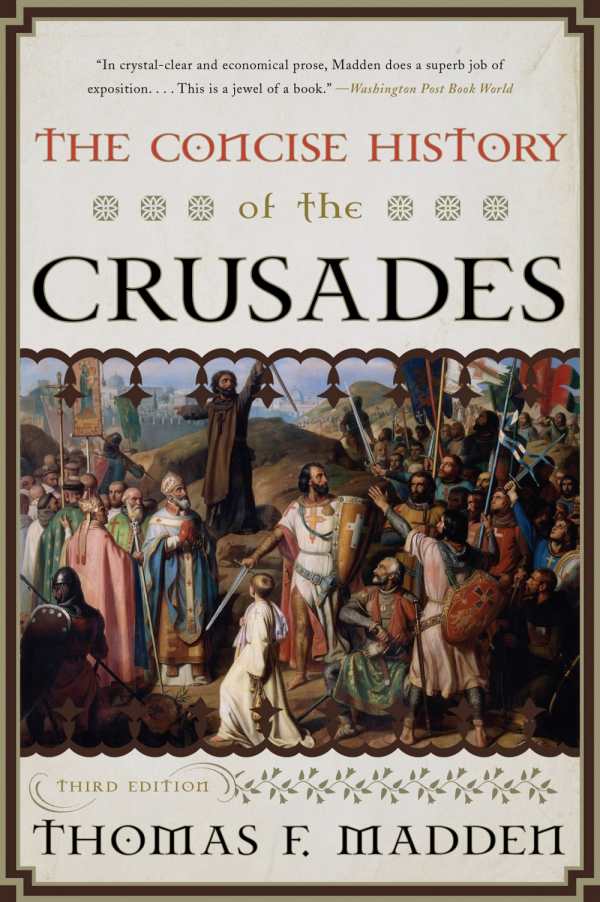The Concise History of the Crusades
Madden’s clear text invites readers at all levels of knowledge into this commentary on how the crusades shaped our modern world.
The crusades began nearly a thousand years ago—such distant history often feels as if it could never apply to contemporary times. However, in The Concise History of the Crusades, Thomas F. Madden convincingly shows how the crusades prove useful in understanding the political, cultural, and religious wars waged in today’s society.
In 1096, the crusades officially began with a call to action by Pope Urban II. Though many scholars say the crusades ended with the fall of Acre in 1291, Madden broadens the scope and shows they were still occurring into the 1500s. The crusades were essentially “a war against Muslims for the defense of the Christian people,” explains Madden, though pagans and other enemies of the church were also targeted.
True to the book’s title, Madden manages to deftly discuss his research while maintaining a clear, approachable style that makes this text accessible to all levels of readers. For example, when discussing difficulties surrounding the fourth crusade, Madden says, “It was a difficult summer for the crusaders. They camped on the Lido, a sun-baked and barren island at the edge of the lagoon. There they waited week after week, staring at the magnificent fleet across the water and going nowhere.” His ability to set the scene breathes life into the history.
Illustrations help depict the events and come in many forms, such as carvings and mosaics that highlight a battle and photos that show the landscape. Madden also includes maps with the crusaders’ paths clearly marked to help readers visualize specific treks.
In the final chapter, Madden speaks of the effects these crusades of long ago have had on modern society. The author purports that it is not the crusades themselves that created tension between the Muslim Middle East and the Christian West. He claims that the tension arose from the “artificial memory of the crusades constructed by modern colonial powers” that has been passed down by Arab nationalists and Islamists.
The extent of Thomas Madden’s research is evident, and his ability to describe history in an interesting and clear manner will appeal to all readers who enjoy reading about the past, especially where it is examined within a modern context.
Reviewed by
Kandy Alameda
Disclosure: This article is not an endorsement, but a review. The publisher of this book provided free copies of the book to have their book reviewed by a professional reviewer. No fee was paid by the publisher for this review. Foreword Reviews only recommends books that we love. Foreword Magazine, Inc. is disclosing this in accordance with the Federal Trade Commission’s 16 CFR, Part 255.

